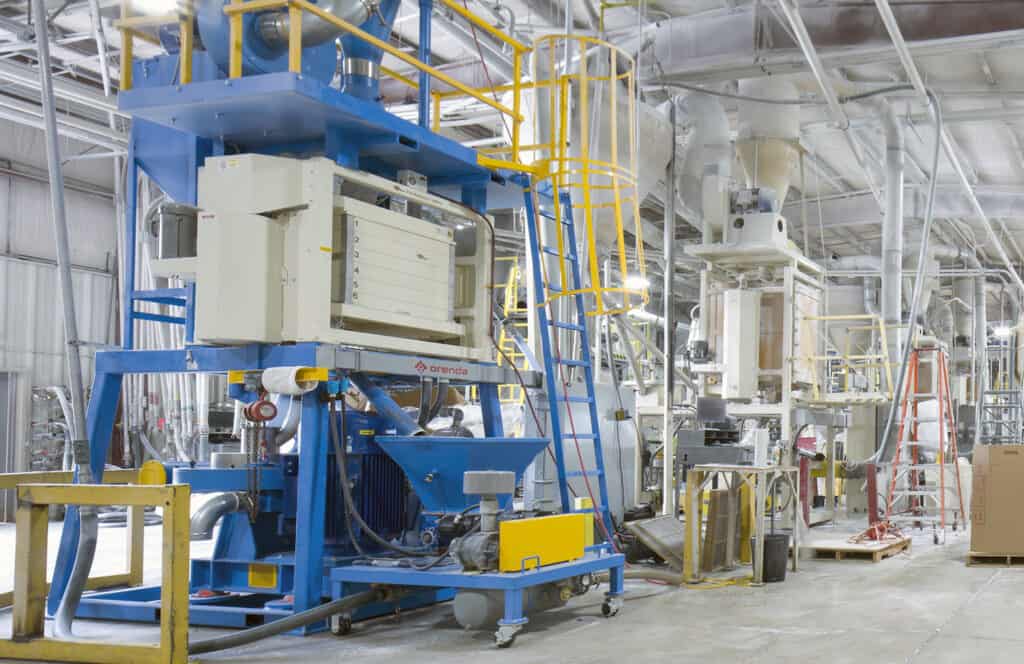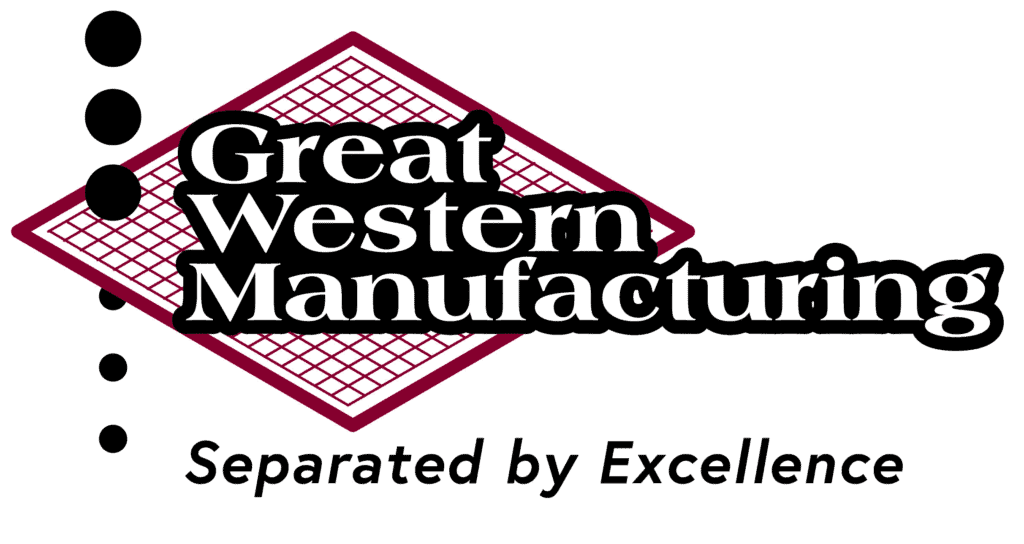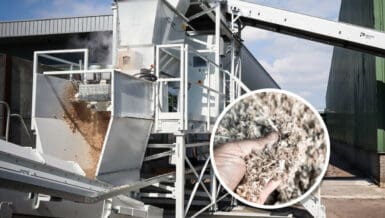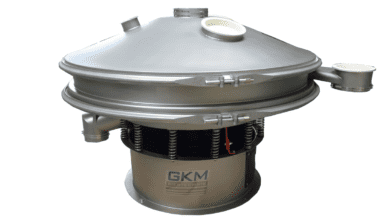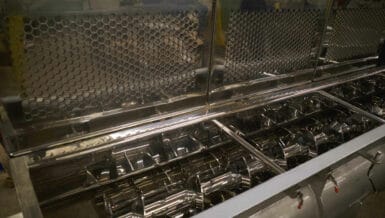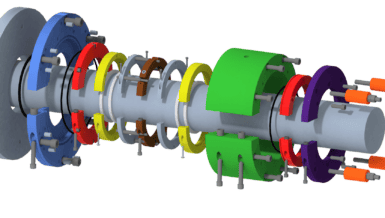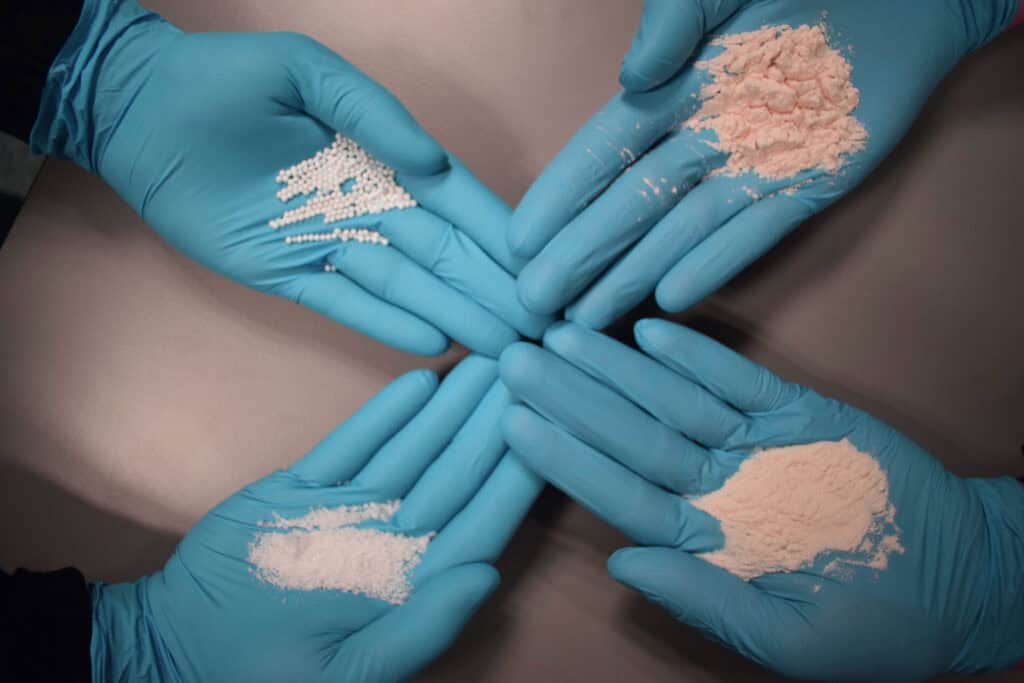With this rising demand, an obvious step is to lower the scrap rate along the production line, which is done through meticulous quality control processes. When working with bulk polymer plastics for any plastic production, two crucial factors will affect final quality before production even begins: consistency of granule size, and bulk material purity. Quality control sifting and classifying of bulk polymer materials is therefore a vital and foundational step reducing product rejections and maintaining consistently superior quality manufacturing.
For both end-use fabrication and bulk material production, common polymer production issues are caused by contaminants present in the material. An example in which material purity requires additional focus is the processing of recycled plastic. In 2020, California became the first US state to legally require that plastic PET bottles contain a minimum of 25% recycled post-consumer plastic, with multiple states in the process of enacting similar laws. Meeting such requirements involves numerous steps in sorting, washing, grinding, and purifying to produce a usable recyclate. In the recycling of PET plastic bottles, for example, impurities such as metal particles, PP/PE (from bottle caps), PVC from label residues, and metal bits can still be present in the end product. The removal of these contaminants from the ground recyclate is critical. Recyclate must have the purity and integrity of the primary plastic with which it will mix during the production of recycled bottles.
Residual impurities survive the general cleaning process because of particle density, size, and magnetic properties. Even tiny impurities and color alterations can unfavorably impact the tensile strength and thermal properties of plastic. By running materials through a sifter, these impurities can be removed. A stacked screen sifter utilizes multiple screens at different mesh sizes, adjustable feed rate and rotation speeds to simultaneously separate particles by density and size. Particles of a different density than the plastic are impurities and are separated as “tailings” as they travel through the layers of screens within the sifter, delivering only usable material to the next step in production, while oversized plastic particles can be recycled through the grinding process.
Plastics manufacturers make a diversity of polymers compounded for injection molding, rotational molding, blow molding, and extrusion processes. Because raw material quality directly affects the end product, plastics fabricators for any application must ensure they are sourcing bulk materials from manufacturers that can guarantee the consistency and purity of their bulk granular polymers.
Just as salt will change the temperature at which water boils, foreign substances within your sourced plastics can cause the melting point to be altered, which in turn will cause difficulties all along the molding and extrusion process. Temperature is vital to plastic’s flow into a mold and maintaining its chemical integrity for the intended cure. Thus, impurity-induced melting point variations will result in products prone to irregularities such as splay marks, streaks, flow lines, and discolorations. Plastic that is too hot can flow too quickly, trapping air within the mold. Too cool, and the fluidity of the plastic is affected. Inconsistent temperatures within the plastic can cause two streams to meet, but not mix correctly, producing “weld lines” that are susceptible to breakage and weaken the product.
These same compound polymer manufacturers need their products to have consistently-graded particle size. If the bulk plastic has irregular particle size, then melting rates, viscosity, and homogeneity of the final hot, fluid plastic is also affected, causing the aforementioned manufacturing failures all along the molding and/or extrusion processes. During the heating process, oversized particles will melt at a slower rate, causing small particles to melt and surround larger, unmelted particles. These larger particles can cause problems throughout the manufacturing process such as incomplete mold fills, uneven surfaces, and flow line blockages. Undersized particles will melt more rapidly than the rest of the material, risking plastic burn, and causing abnormalities in the material’s chemical makeup.
On the other hand. a consistent material size, free of impurities, will melt evenly to the desired temperature, producing a homogeneous mixture for proper molding and curing. The simultaneous answer to both particle size and compound purity issues for quality control in manufacturing bulk polymers is therefore to for manufacturers and fabricators to verify their materials have been properly sifted and classified. This process increases final product purity while the different screen mesh sizes simultaneously classify particles by size, allowing oversized materials to be recycled through grinding process, and undersized dust to be removed. An economical and efficient solution is the Tru-Balance Sifter.

A Tru-Balance Modular Sifter at Jerico Plastic Industries in Minerva, Ohio
A Tru-Balance Box Sifter for in-line quality control and custom sifting services at Allgrind Plastics, Inc. in Asbury, New Jersey
A Tru-Balance Modular Sifter (front) and Box Sifter (back) at Brunk Plastic Services in Goshen, Indiana
With modular, box-free design with nested sieves and lift-out screen frames, this stainless-steel sifter can provide 15-100 square feet of screening area. The particulate can be separated up to three particle size separations of the product.
For up to six separations from ¼” to 400 mesh, a box-type sifter provides 10-127 sq ft of screening area in a dust-tight sieve housing. With a gentle, gyratory drive motion, sifting is accurate and efficient without abrasion to product, which is particularly important for temperature-sensitive thermoplastics, and is highly adjustable per application in screen mesh size, rotation rate, and throughput rate requirements for optimal and efficient product production. Able to ensure clean, food-grade, and other highly-graded granular products, sifting plastic particulate products ensures superior quality and size uniformity when processed by the Tru-Balance Sifter.
To learn more, please reach out to Great Western Manufacturing at (800) 682-3121 or email us at sifter@gwmfg.com
Photo Credits: Jerico Plastic Industries / Allgrind Plastics, Inc. / Brunk Plastic Services




